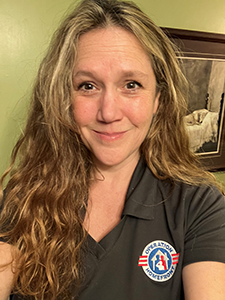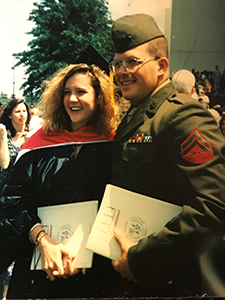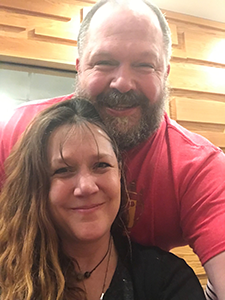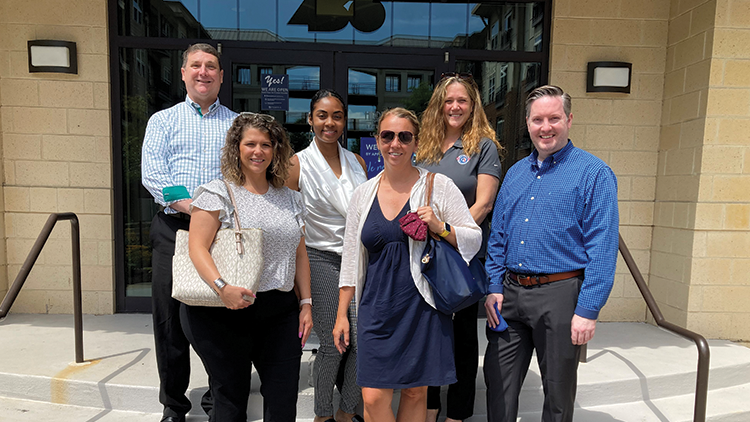When Mary Mahoney was working as a case manager for a Baltimore crisis center and would reach out to nonprofits, most were not responsive.
Operation Homefront always called back.

That responsiveness and eagerness to help—either directly or by recommending other services—left such an impression on her that when a job opening with Operation Homefront came up just weeks before the 2020 pandemic, Mary applied even though it meant leaving a full-time position for a part-time one.
“Everybody is driven by the mission,” she said, “and I’ve never worked for a place where everybody was all on board.”
That part-time position became full-time when Mary stepped in as manager of Operation Homefront’s Transitional Housing-Village (TH-V) in Gaithersburg, Maryland.
The TH-V program provides fully furnished apartments for wounded, ill, and injured service members, and their families, to live rent-free while they go through the process of medically separating from the military.
Mary describes her clients’ medical transitions as an unexpected change in the trajectory of their lives. Some of them were planning a full career in the military and suddenly an injury or illness forces them onto another path.
“For the most part it’s hard because it’s an unexpected event,” she said of those in the Villages, “and then you have eight months to figure out how you’re going to adapt and what you’re going to do differently.”
Mary understands the struggles military families face as they transition out of the military because she was once there herself.

Mary was studying for a psychology degree when she met her future husband the day after he joined the Marine Corps. Terry Mahoney was at 13 different duty stations and honorably discharged as a sergeant in 1996 after fulfilling his six-year enlistment.
He sustained a foot injury and hearing loss during his service and lives with PTSD.
“I didn’t think about his injury impacting me, but aside from having my children, the most impactful thing in my life is having married a Marine who now has a service-connected disability,” she said. “Those two factors define almost everything about me.”
Mary is grateful Operation Homefront serves military families in their time of need as they have served us in our nations time of need. “Working for an organization that truly understands the struggles of military families means so much,” she said.
Mary said success for each military family looks different during their time in the program, but they all work towards paying down debt and increasing their savings. “A big part of what I do is helping with the transition process,” she said, “helping them reidentify who they are and taking that into the civilian world. Giving them a soft landing at the Village helps them have that successful transition.”

Operation Homefront currently operates its program in three locations across the country including San Diego, California and San Antonio, Texas. The TH-V program is always a need, but especially now when inflation has increased the cost of living for families and a recent Military.com report shows that one in five military families struggles with food insecurity.
In honor of Veterans Day, Operation Homefront is issuing a Veterans Day challenge to raise $250,000 to support military and veteran families. Donate today and help us make life-changing impact for military families.

